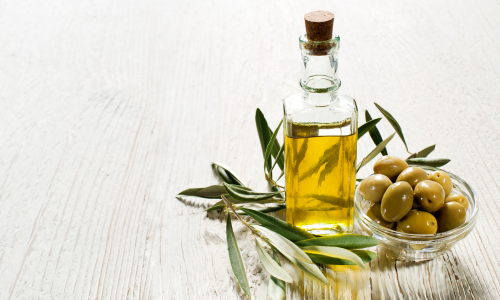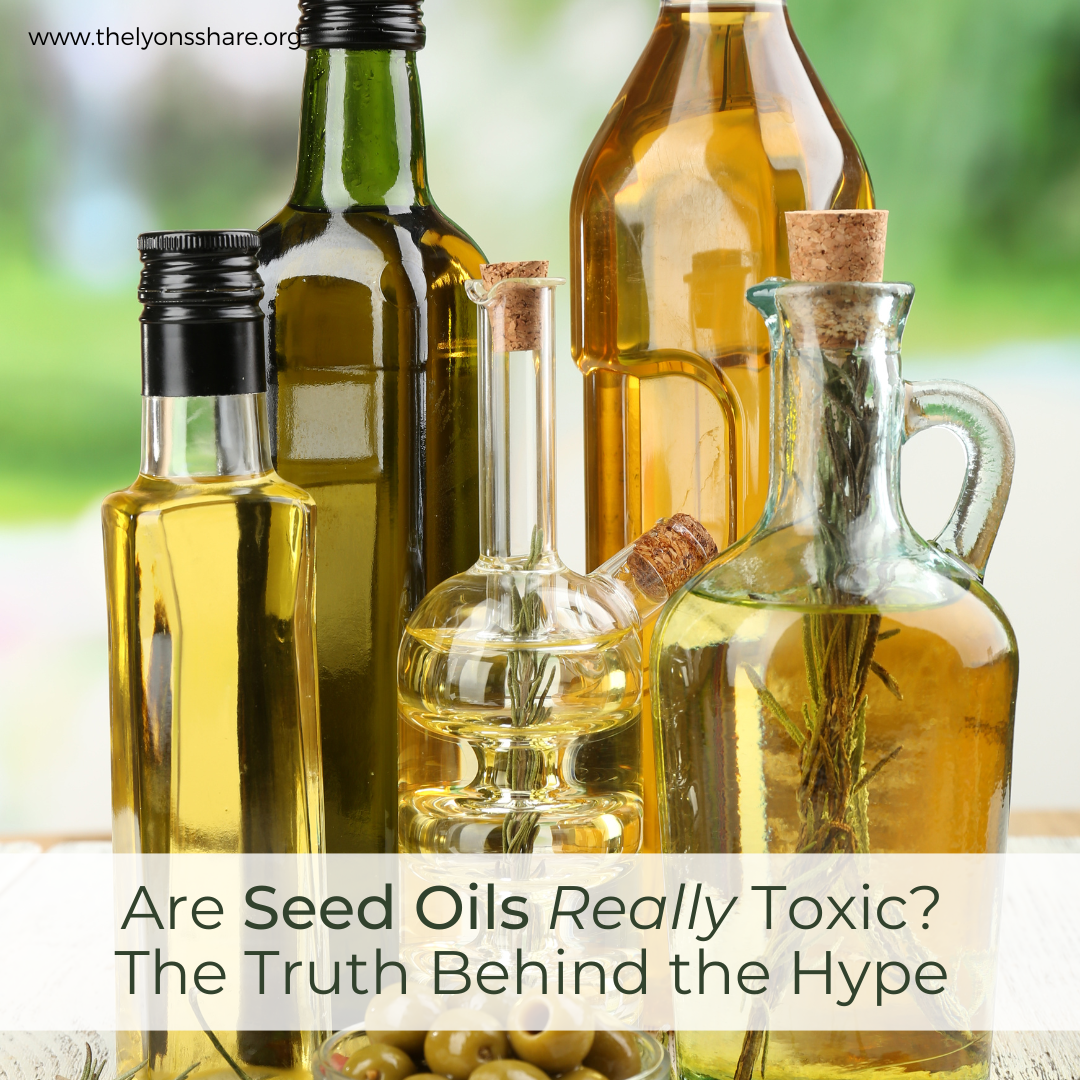Seed oils have gotten a lot of attention lately. Are they inflammatory villains? Totally fine in moderation? Or somewhere in between? You’ve probably seen polarizing opinions on this all over social media. Let’s break down what the science says, and—more importantly—what this means for your everyday life.
What Are Seed Oils, Anyway?
Seed oils—like canola, soybean, sunflower, safflower, cottonseed, and grapeseed—are extracted from the seeds of plants, usually through high-heat and chemical processes. These are commonly found in processed foods, salad dressings, and restaurant meals.
Technically, you could press oil from a sunflower seed at home, but commercial oil production looks very different—and this is where we run into issues.

Why the Extraction Process Matters
Most seed oils are extracted using high heat and chemical solvents, usually hexane. This process increases oxidation—meaning the fats in the oil start to break down and form unstable molecules called lipid peroxides.
Oxidation is like rust for your cells. It generates free radicals, which can damage DNA, proteins, and cell membranes. This oxidative stress contributes to inflammation, which we know is at the root of nearly every chronic condition—from heart disease to diabetes to autoimmune issues. So while oxidation and inflammation are different, oxidation is a key driver of inflammation in the body.
And it gets worse—these already unstable oils are often packaged in clear plastic bottles, exposed to light and oxygen, transported long distances in hot trucks, and sit on shelves for months. By the time you eat them, they’re even more oxidized.
The Omega-6 Fatty Acid Problem
These oils are also rich in omega-6 polyunsaturated fats—especially linoleic acid. Now, we do need some omega-6s for immune function and cell health—but not in the excessive amounts we’re consuming today. The problem is our omega-6 to omega-3 ratio has exploded—from around 1:1 in ancestral diets to more like 20:1 or even 50:1 today.
That imbalance promotes a pro-inflammatory environment, which has been linked to chronic conditions like heart disease, autoimmune issues, and metabolic dysfunction.
Want to know your omega-6 to omega-3 ratio? We offer advanced omega panel testing for clients to assess this exact issue. If you’re curious about where you stand and want a personalized plan to support your health, book a free initial consultation to learn more about our functional nutrition programs.
But What About High-Oleic Oils?
Great question. High-oleic sunflower or safflower oil has been bred to contain more monounsaturated fat (oleic acid) and less linoleic acid. These oils are more stable, less prone to oxidation, and less inflammatory.
If you’re going to use a seed oil occasionally, high-oleic versions are definitely a better option. But most processed foods don’t use high-oleic—so unless you’re reading labels carefully or choosing them intentionally, you’re likely still getting the standard version.
Real-World Context: How Much Is Too Much?
So here’s the nuance. If you’re eating mostly whole foods, cooking with stable fats, and occasionally having a snack bar with some high-oleic sunflower oil or a drizzle of store-bought hummus at a party, you’re going to be fine. Your body is remarkably resilient.
But if seed oils make up the base of your diet—if you’re constantly eating fast food, processed snacks, and restaurant meals cooked in canola oil—then yes, that’s a chronic exposure to oxidized fats that can contribute to inflammation over time.
This isn’t about demonizing seed oils—it’s about recognizing patterns. Small amounts aren’t a problem. A steady stream? That’s what we want to rethink.

So, Should You Avoid Seed Oils Completely?
Not necessarily. My take? We don’t need to fear small amounts of seed oils in whole foods or occasional meals. If seeing the sunflower oil in the hummus ingredient list is going to make you pass on veggies and hummus at a party and dive straight into the chips and queso, you’re missing the point.
But regularly consuming highly processed foods that are loaded with oxidized seed oils? That’s worth limiting.
Instead, choose more stable fats for cooking:
- Extra virgin olive oil (high in antioxidants, great for drizzling on salads or low heat cooking)
- Avocado oil (great for high heat)
- Ghee or coconut oil (very stable saturated fats)
- Grass-fed butter if tolerated
And work on balancing omega-3s—adding more wild-caught fatty fish, flax, chia, and walnuts can help offset any excess omega-6s.
The Bottom Line
Seed oils aren’t inherently toxic—but their prevalence in the modern diet, the way they’re processed, and the imbalance they create can all contribute to inflammation and chronic disease. If you focus on whole foods and choose better fats most of the time, you don’t have to fear a little seed oil here or there. If you’re making most of your meals at home and choosing whole food fats, you’re already ahead of the game.
____
️ Want to hear about this topic in audio format? → Check out the podcast episode here!


0 Comments